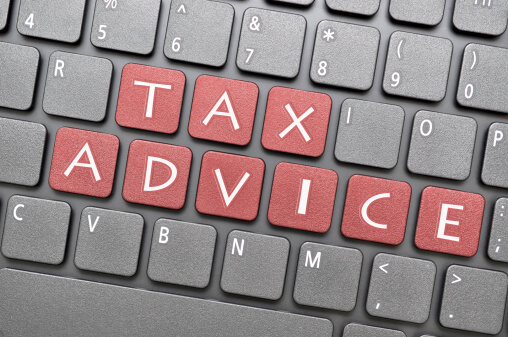By Cliff Ennico
‘Tis the season for last-minute tax questions. Here are some of the more interesting ones I’ve received in the last week, and my best suggestions:
Q: “I am not yet registered as a business with the government, so have no tax I.D. number. I was just doing this as a trial for myself to see how it went first, and now plan on going forward as a registered company. How do I list myself on my tax return? Am I a sole proprietor?”
A: You have a choice here. If you don’t want to fill out Schedule C as a sole proprietor, you can report any income you received as “hobby income” on line 21 of your Form 1040. The great thing about filling out Schedule C, however, is that by doing so you qualify for all kinds of great business deductions that people with only a “hobby” can’t take. Talk to your accountant about filling out Schedule C as a “sole proprietor”, and using your Social Security Number as a tax I.D. number for now.
Q: “If I borrow money for my business from a friend, without interest, how do I treat that on my tax return? Is that considered income?”
A: You don’t have to report loans on your tax return, nor do you have to pay income tax on loan. If you’re obligated by a written agreement to repay the loan, the IRS doesn’t consider the money to be income, either earned or unearned.
When you repay the loan, you can deduct any interest you pay as a business expense, but not the principal portion. Since this loan is without interest, you won’t be able to take a deduction, and your lender may have to pay tax on “imputed” interest at the IRS’ “applicable federal rate” (AFR) – currently around 2% a year.
Q: I rent an office/warehouse space and thus do not take a home office deduction. I report business income on a Schedule C. My husband works from home for the convenience of his employer and would otherwise meet the IRS home office test. I’ve been told that we cannot use the deduction for his home office because of my rented space, is that correct?
A: Correct, but not because of your rented space. That home office is your husband’s, but he doesn’t have a business. Any home office maintained for the convenience of an employer does not qualify for the home office deduction.
Q: If I did not track my mileage last year, is there still a way I can claim my mileage?
A: Only if you can find a way to get good records of it. For example, if you have a receipt from a post office for a specific day, you might be able to say that you had mileage to and from the post office on that day.
Q: If I have nexus in another state for sales taxes, does that mean I’m now liable for income tax reporting in that state too?
A: Not necessarily. Talk to your accountant and ask her to look up the income tax “nexus” rules in the other state, which often require a greater physical presence than “nexus” for sales taxes.
Q: Do the “nexus” rules for sales tax apply when selling to a foreign country?
A: No, at least for U.S. taxes. If you have a physical presence in a foreign country, your business probably will be subject to that country’s tax laws and social welfare legislation. Also, your buyers may have to pay value added tax (VAT) on their online purchases.
Q: If you have offices in two states can you use the office deduction for each? These are dedicated offices.
A: Not at the same time; generally you are considered to have only one “home,” usually the place where you are domiciled for tax purposes. However, if you use the two offices at different times (i.e. you spend the winter months in Florida and the summer months in the northeastern United States, as many people do), you may be able to claim the home office deduction for each office for that portion of the year where you are physically there. Just don’t overlap. Also, keep in mind that if you do this you will have “nexus” for sales tax (and possibly also income tax) in both states.
Q: Is there free tax help for businesses?
A: There are lots of online resources and information, but we are not aware of free tax help that’s specific to an individual business. Your local SCORE chapter may be able to help you – some of their members are retired accountants who may be able to help you for free or for a very small charge. To find the SCORE chapter nearest you, go to www.score.org. Also, check out the IRS’ Volunteer Income Tax Assistance (VITA) program at www.irs.gov/Individuals/IRS-Free-Tax-Return-Preparation-Programs. Just remember, though, that “you get what you pay for”.
Cliff Ennico (cennico@legalcareer.com) is a syndicated columnist, author and host of the PBS television series ‘Money Hunt’. This column is no substitute for legal, tax or financial advice, which can be furnished only by a qualified professional licensed in your state. To find out more about Cliff Ennico and other Creators Syndicate writers and cartoonists, visit our Web page at www.creators.com. COPYRIGHT 2017 CLIFFORD R. ENNICO. DISTRIBUTED BY CREATORS SYNDICATE, INC. Follow him at @cliffennico.







